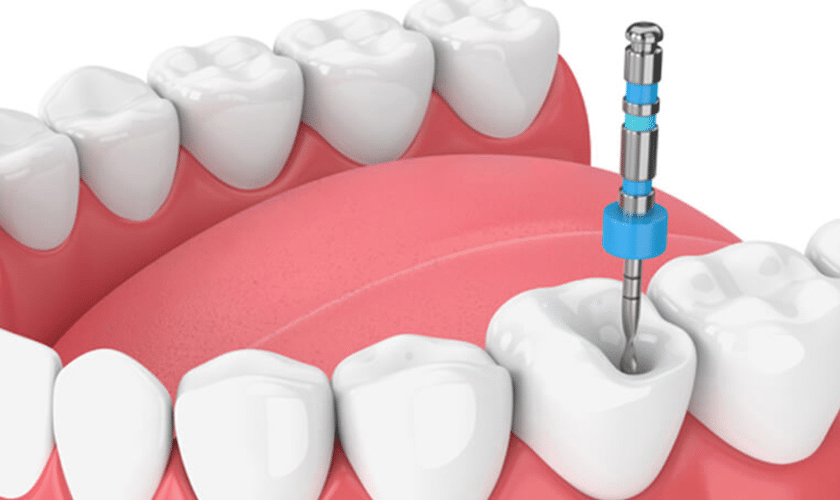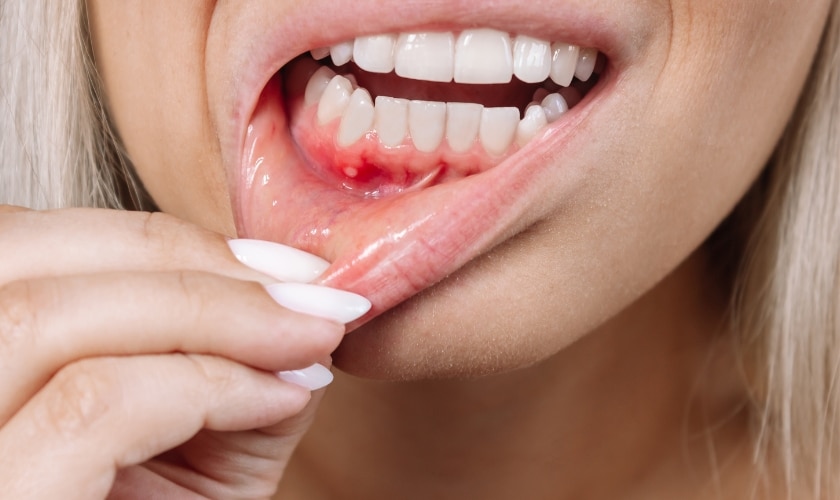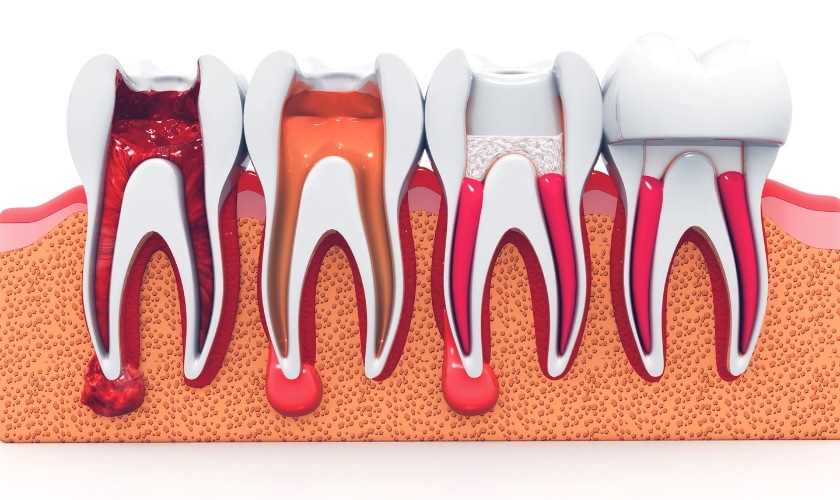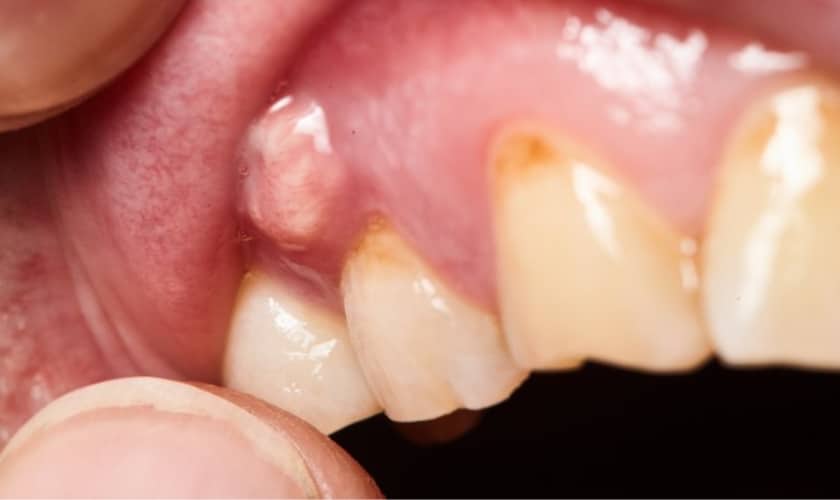
Are you about to undergo a root canal and feeling nervous about the recovery process? Don’t worry, we’ve got you covered. Root canals are common dental procedures that can save your tooth from further damage or extraction. However, proper aftercare is crucial for a smooth recovery. In this blog post, we will guide you through everything you need to know about root canal aftercare – from what to expect during and after the procedure to tips on how to prevent infection and relieve pain post-treatment. So sit back, relax, and let’s get started!
What To Expect During And After A Root Canal
The thought of getting a root canal treatment can be intimidating, but knowing what to expect can help ease your fears. During the procedure, your dentist or endodontist will remove the infected or damaged pulp from inside your tooth and clean out the root canals before sealing them with a filling material.
You may experience some discomfort during the procedure, but it is usually manageable with local anesthesia. Afterward, you might feel some sensitivity and soreness in the treated area for a few days as your body heals and adjusts to the new filling.
It’s common to experience mild swelling and tenderness around your jawline after a root canal, especially if there was an infection present before treatment. Your dentist may prescribe pain medication or recommend over-the-counter options like ibuprofen to manage any discomfort you experience.
In some cases, you may need additional dental work following a root canal such as placement of a crown or other restoration. Be sure to follow up with all recommended appointments so that any remaining issues can be addressed promptly.
While having a root canal may not be anyone’s idea of fun, it is important for maintaining good oral health in cases where decay or damage has occurred deep within the tooth structure.
The Different Types Of Root Canals
When it comes to root canals, there are different types that your dentist might recommend depending on the severity of your tooth decay or infection. The first type is a standard root canal which involves removing the infected pulp from the tooth and filling it with a dental material.
If you have more complex root anatomy or an infection that has spread beyond just one tooth, then your dentist may suggest an apicoectomy. This procedure removes the tip of the root as well as any infected tissue around it.
Another option is a pulpotomy which only removes part of the pulp in cases where the infection hasn’t reached all parts of the tooth yet. This procedure is often used for children who have baby teeth affected by cavities.
If you have multiple teeth that need treatment, your dentist may suggest a full mouth reconstruction which involves multiple procedures including root canals and other restorative treatments like crowns or bridges.
It’s important to remember that each case is unique and requires individualized treatment plans. Your dentist will evaluate your situation carefully before recommending any type of root canal procedure.
How To Prevent Infection After A Root Canal
Preventing infection after a root canal is essential to ensure the success of the treatment. The first step in preventing infection is maintaining good oral hygiene habits, such as brushing and flossing regularly. Additionally, it’s important to avoid eating or drinking anything that can irritate the treated area for at least a few hours after the procedure.
It’s also crucial to follow your dentist’s post-treatment instructions carefully. This may include taking antibiotics or using an antimicrobial rinse to help prevent infection. It’s important not to miss any scheduled follow-up appointments with your dentist so they can monitor your recovery progress and catch any potential issues early on.
In some cases, a dental crown may be necessary following a root canal procedure. This helps protect the tooth from further damage and reduces the risk of reinfection. If you experience any unusual symptoms like persistent pain or swelling after your root canal treatment, don’t hesitate to contact your dentist immediately as these could indicate an infection or other complications that require immediate attention.
How To Recover From A Root Canal
After undergoing a root canal, it is important to give your body the time and care it needs to heal properly. Here are some tips on how to recover from a root canal:
Firstly, avoid eating hard or crunchy foods for several days after the procedure. This will help prevent any damage to the tooth that was worked on during the root canal.
Secondly, make sure to take any prescribed antibiotics as directed by your dentist. These will help prevent infection and ensure proper healing.
Thirdly, keep up with regular brushing and flossing habits throughout your recovery period. Maintaining good oral hygiene can help prevent further dental issues down the line.
Fourthly, if you experience any swelling or discomfort after the procedure, apply an ice pack to the affected area for 20 minutes at a time several times a day.
Attend all follow-up appointments with your dentist as scheduled. They will check on your progress and ensure that everything is healing properly.
By following these simple steps, you can have a smooth recovery from your root canal procedure and get back to living life pain-free!
Post-Root Canal Pain Relief Tips
After a root canal, some patients may experience discomfort or pain. However, several post-root canal pain relief tips can help make the recovery process smoother.
One of the most effective ways to manage post-root canal pain is by taking over-the-counter medication such as ibuprofen or acetaminophen. These medications can help reduce inflammation and alleviate any discomfort you may be experiencing.
Another useful tip for managing post-root canal pain is to apply an ice pack on your cheek near the affected area. This will help reduce swelling and numb any sensations in your mouth.
It’s also important to avoid eating hard or crunchy foods immediately after a root canal procedure as they could cause unnecessary pressure on the treated tooth. Instead, opt for soft foods like soups, mashed potatoes, and yogurt until you feel comfortable enough to eat solid food again.
It’s crucial to maintain good oral hygiene practices during recovery from a root canal treatment. Brushing twice daily with fluoride toothpaste and flossing at least once per day will not only keep your teeth healthy but prevent potential infection from developing in the treated area.
By following these simple yet effective post-root canal pain relief tips, patients can ensure a smooth recovery process without worrying about excessive discomfort or complications down the line.
Bottom Line
A root canal may seem like a daunting procedure, but with the right aftercare and recovery tips, you can ensure that your recovery is as smooth as possible. It’s important to follow all of your dentist’s instructions for aftercare to prevent further complications and infections.
Remember, taking care of your oral health is crucial in preventing the need for future root canals or other dental procedures. Be sure to brush and floss regularly and visit your dentist for routine check-ups.
By following these tips, you’ll be on your way to a healthy smile and pain-free teeth. Don’t hesitate to reach out to your dentist if you have any concerns during or after the root canal procedure. With proper care, you’ll be able to enjoy eating all of your favorite foods again in no time!




